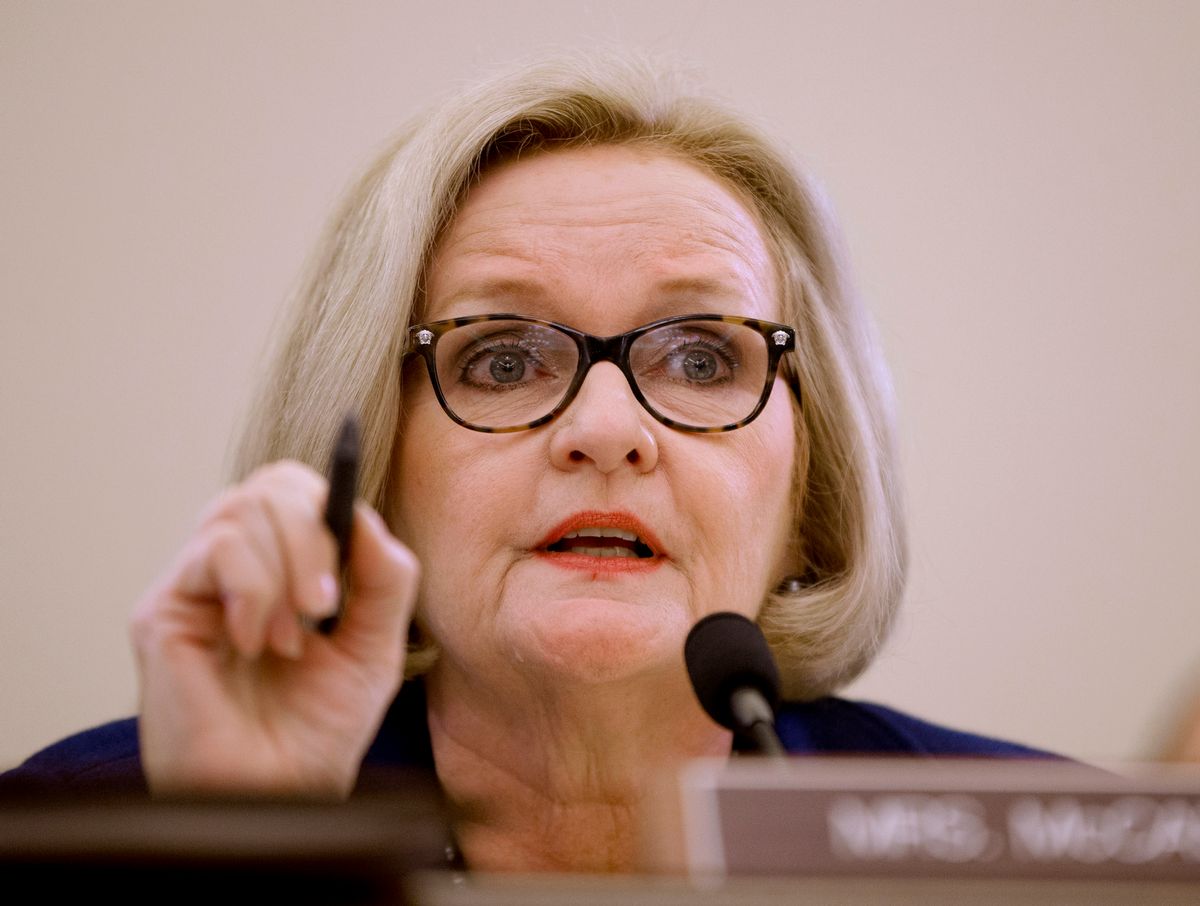Recent data analysis from the Washington Post revealed that 45 percent of colleges with more than 1,000 students reported zero rape cases in 2012. Knowing what we do about the statistical prevalence of sexual assault on college campuses, that means there's a problem. A big one. A survey on sexual violence at American colleges and universities released Wednesday by Sen. Claire McCaskill confirm as much.
The study of more than 300 schools found that more than 40 percent hadn't conducted a single investigation into an alleged assault over the last five years, even though some of these schools had reported such incidents to the Department of Education. McCaskill called this the survey's "most alarming" number. "It's troubling to me that they are reporting more incidents than they actually had investigations," McCaskill said during a press conference on the survey. "That means that they are reporting some incidents that they clearly have not even bothered to investigate."
The report also found that less than 20 percent of schools conduct surveys to determine the prevalence of sexual assault on campus, even though these surveys are considered the most accurate way to obtain data on the issue, since many survivors of sexual violence do not report these crimes to the police or administrators. Of the schools that do have victims' services in place, many make it difficult to report these crimes anonymously. Only half of the colleges surveyed had a hotline in place to allow victims to report by phone, and only 44 percent allowed students to report online.
And while some students may feel comfortable coming forward about an assault to a trusted member of the faculty, there's no guarantee that this person has been trained to handle such a disclosure. Around 20 percent of schools don't provide such training to faculty, and more than a third of schools don't offer this training to students. Worse, the report found that schools are failing to provide "targeted training" to fraternities and athletes, student groups that have a higher frequency of sexual assaults than the overall student population. In a culture that is utterly obsessed with modifying women's behavior in a misguided attempt to prevent sexual assault by blaming victims, a simple training on affirmative consent and bystander intervention to groups of young men seems like a no-brainer. And yet only 22 percent of schools provide such training within the Greek system, and only 37 percent provide such training to athletes. But the training numbers increase among Division I schools, the survey found.
Even law enforcement fall short. "Law enforcement officials at 30 percent of institutions in the national sample receive no training on how to respond to reports of sexual violence," according to the findings. No training.
Clearly, something is terribly wrong at schools across the country. While the report found improvements over the last decade, there is still a long, long way to go. McCaskill said Wednesday that she intends to introduce legislation to address the issue, which she expects will have bipartisan support. But judging from some of the conservative pushback to the White House effort to address the problem of sexual violence on campus, I can't help but feel skeptical of McCaskill's confidence that her colleagues across the aisle will step up on the issue. Though I'd love to be proven wrong.

Shares